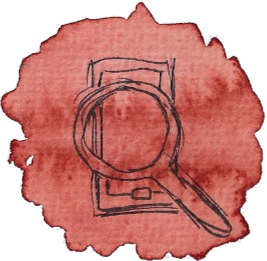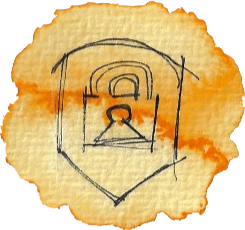APP FEATURE SET.
What makes our app special.
Smartphones provide a detailed insight into the everyday experience and behavior of users.
Our PhoneStudy app is a tool for recording crowdsourced digital footprints on your smartphone every day. In doing so, our focus is on data protection.
Mobile Sensing
While you use your smartphone in everyday life, the PhoneStudy app records in the background what you do with your smartphone and in which situation you are. For example, it records how long or how often you talk on the phone, what music you listen to, what apps you use and for how long, what activity you engage in (e.g. driving or cycling) and what your location history looks like.
Information from notifications, contact and calendar entries, connectivity and other sources is also processed. In research, this is also referred to as the "mobile sensing" method.


The protection of your data is very important to us!
For this reason, we take numerous precautions to protect the data collected in studies. Our data protection concept has been coordinated with the relevant data protection officers and the responsible ethics committee.
For example, your contact data (e.g., name, email address) will never be merged with smartphone and questionnaire data collected during the study. Smartphone and questionnaire data are each stored under an anonymous character code and are only merged for selected analyses. Only a limited, appropriately qualified group of people has access to the data in order to use it to analyze scientific questions.
Encryption
For more data security, we preprocess data on the smartphone in cases where it is possible for us to do so. For example, entered texts, names of contacts or phone numbers are not simply stored in their original form, but only certain information relevant to our scientific questions is extracted and stored.
Names and phone numbers are encrypted using a so-called hashing algorithm. Hashing allows to check the collected data for equality without knowing the original data. For example, we store whether you make multiple calls to the same people. However, we do not collect the phone number or the name of these persons.


Audio-Data
In some of our studies, we ask you to answer short questions about your current mood and situation via direct "speaking" into your smartphone. In other studies, we are also interested in background noise (e.g. is a conversation taking place or not?). Here, your voice recordings are always stored only briefly, evaluated directly on the device, and then immediately deleted again. Thus, only voice parameters, such as your volume, pitch or certain frequency ranges are stored.
Keyboard-Data
In order to gain information about your language use, we take a look at your text input. Thus, your keyboard will be replaced by our research app keyboard during the study period. You won't notice any difference when composing texts and also have the option to temporarily disable the recording of your keyboard usage.
You don't have to worry - we don't read the original texts you write, because the app processes the data in real time as you write. So we only store which word categories (e.g. greeting phrase, emotion word) and emojis you use and count the frequency of your used words over the entire study period. So we cannot reconstruct your original texts at any time.
